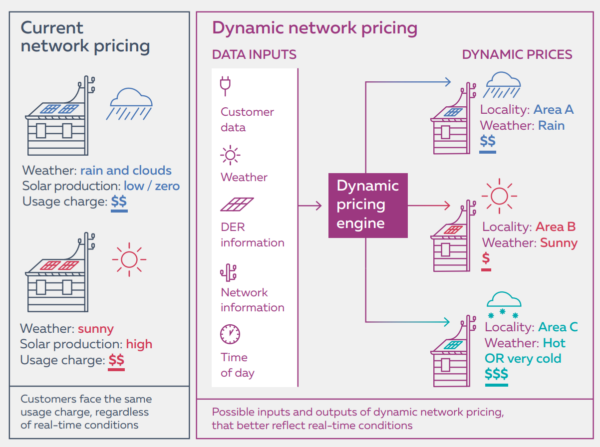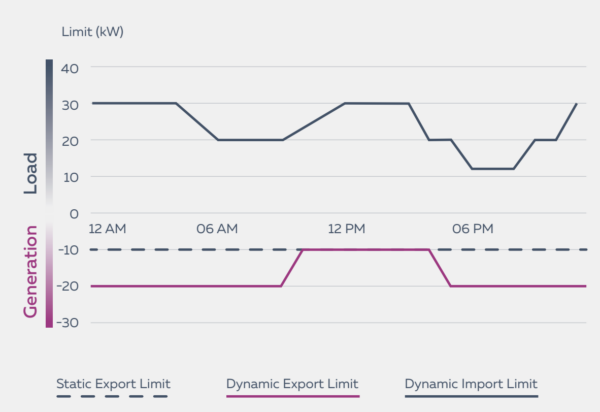Sydney-headquartered electricity retailers Shinehub and Origin Energy, and Melbourne-based retailer Energy Australia have joined distributor Ausgrid’s pricing model trial called Project Edith, with founding partner and software company Reposit Power.
Project Edith dynamically generates the cost of using the network at particular times and locations, to unlock value both for and from consumer energy resources (CER) such as home batteries while supporting network stability and electricity demand.

Image: Ausgrid and Reposit Power
Ausgrid Market Development and Strategy Group Executive Tim Jarratt said by introducing prices that can change in near real-time based on network conditions, customers with flexible resources such as home batteries can be compensated for supporting the grid during times of constraint.
“The nature of the network has fundamentally changed. It used to deliver electricity in one direction, from the power station to your door but today, there are increased electricity flows in both directions as the network absorbs rooftop solar,” Jarratt said.
“It is vital network companies like Ausgrid evolve to meet the changing needs and opportunities of the transition and find ways to help accommodate as much residential rooftop solar on the grid as possible.”
Jarratt said variable generation like wind or solar needs firming up and that can in part be provided by the aggregation of customer-owned flexible devices into virtual power plants.
Ausgrid Distribution System Operator Services’ Alida Jansen van Vuuren said Project Edith was designed to test and showcase dynamic network pricing as a viable solution for integrating flexible energy resources onto a distribution network while unlocking greater customer value.
“Project Edith is about redefining how we think about how customers are using their grid connections. We know increasingly customers are taking up new energy tech and participating in new constructs like virtual power plants,” Jansen van Vuuren said.
“This technology means customers can use the grid more efficiently, but only if they are appropriately incentivised to do so, and that’s where Edith comes in with dynamic, cost reflective pricing and rewards. The more people using the network efficiently drives the cost down for everyone.”
Ausgrid’s submission to the Australian Energy Market Operator’s Integrated System Plan highlighted modelling by economists HoustonKemp which calculated wholesale electricity market benefits of Project Edith to between $54 million (USD 35 million) and $398 million over 20 years.
For customers with an electric vehicle and battery, this is about $160 per customer per year, a benefit that would grow if the concept spread to other networks.

Image: Ausgrid and Reposit Power
Shinehub Chief Executive Officer Jin Woo Kim said the initiative represents a significant step towards fairer pricing and a more stable energy network.
“We’re excited to see how our innovative software and technology can create unique tariffs for the Australian electricity market, empowering our customers with solar and battery solutions to actively participate in the energy market, driving both cost savings and sustainability,” Mr Kim said.
Project Edith is named after Edith Clarke, a pioneer of electrical power system analysis, considered the ‘Mother of Invention’ at GE alongside Thomas Edison and Nikola Tesla.
This content is protected by copyright and may not be reused. If you want to cooperate with us and would like to reuse some of our content, please contact: editors@pv-magazine.com.








By submitting this form you agree to pv magazine using your data for the purposes of publishing your comment.
Your personal data will only be disclosed or otherwise transmitted to third parties for the purposes of spam filtering or if this is necessary for technical maintenance of the website. Any other transfer to third parties will not take place unless this is justified on the basis of applicable data protection regulations or if pv magazine is legally obliged to do so.
You may revoke this consent at any time with effect for the future, in which case your personal data will be deleted immediately. Otherwise, your data will be deleted if pv magazine has processed your request or the purpose of data storage is fulfilled.
Further information on data privacy can be found in our Data Protection Policy.